Contents
Every English learner needs to learn Formal and Informal words and the situations these words are suitable to use in. We have compiled a huge list of formal and informal words that can help learners differentiate easily.
First thing first, let’s try understand what is a formal and informal word. Formal words are used in official communication in both oral or written. You are a student and you definitely talk to your teachers, your teachers would appreciate if you communicate formally with them. The same is the matter with a boss or anybody in the world with whom you are not frank enough. Let’s take a few examples
you want to write a letter to your teacher to explain why were you absent last day. You have two words ‘away’ and ‘absent’ , in formal situations we definitely have to choose absent but yes if you are talking to your classmate, you can tell him why were you away last day.
Informal words shouldn’t be used with your teachers, boss and the people you are not frank with. You can comfortably use these words with everybody you are frank with, in short.
Informal ————— Formal
Avoid———–Evade
Also In ————Addition,
Ask –————––Enquire
Afraid-———— Fearful
At First————- Initially
Ask For————- Request
Again & Again ————-Repeatedly
A Bit ————-A Little
Avoid————- Evade
Anyway ————-Nevertheless
Ask Out————- Invite
Away ————-Absent
At Once ————-Immediately
A Lot Of ————-Numerous
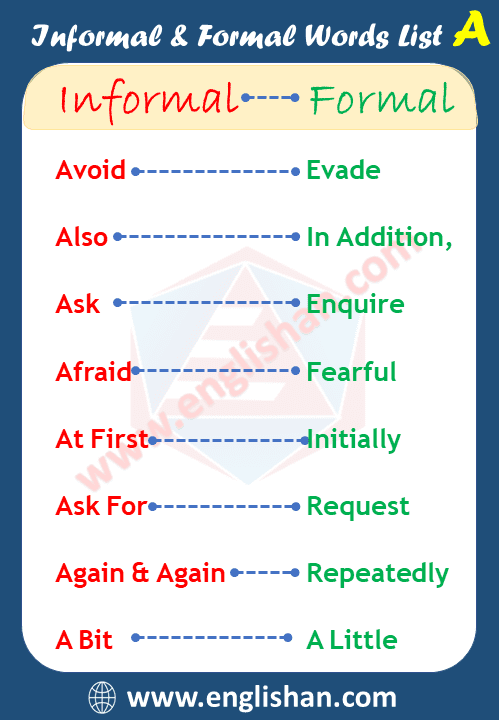
Bright/smart————- Intelligent
Buy ————-Purchase
Build ————-Construct
But ————-However,
Bad ————-Negative
Beat up————- Assault
Break out ————-Erupt
Block ————-Undermine
Blow up————- Explode
Boss ————-Employer
Brave————- Courageous
Better————- Improved
Big/Large————- Enormous
Bring in————- Introduce
Break off ————-Suspend/adjourn
Break down————- Fail/Collapse

Check ————-Verify
Come after ————-Follow
Choose————- Select
Clear ————-Transparent
Come in ————-Enter
Call off –————Cancel
Complex ————-Convoluted
Call on–———— Visit
Childish ————-Infantile
Chance————- Opportunity
Cheap ————-Inexpensive
Can Is ————-capable of
Come up ————-to Reach/attain
Climb–———— Ascend
Clothes ————-Garment

Dirty/ polluted ————-Contaminated
Danger ————-Peril
Dare ————-Challenge
Dad ————-Father
Describe————- Depict
Deal with————- Handle
Dim ————-Indistinct
Death————- Demise
Deal ————-with Manage
Drop out ————-of Withdraw (from)

End ————-Terminate/ Finish
Ease –————Facilitate
Eager————- Avid
Expect ————-Anticipate
Enough ————-Sufficient
Explain ————-Disclose
End ————-Terminate
Empty ————-Vacant
Enjoyment ————-Gratification

Friendly ————-Amiable
Free ————-Liberate
Fork out ————-Pay (money)
Fall out————- Quarrel
Fight ————-Combat

Get ————-Receive
Get out ————-Escape
Go ————-Depart
Go before————- Precede
Go after –————Pursue
Good looking ————-Attractive
Give————- Donate
Go down ————-Decrease
Go through————- Examine
Good for————- Beneficial
Go ahead ————-Proceed
Go up ————-Increase
Go on ————-Continue
Go out of ————-Exit
Give up————- Quit
Get away————- Elude
Go away————- Leave/ depart
Give out————- Distribute
Go against–———— Oppose
Get ————-Obtain
Good ————-Positive
Get by————- Survive

Hit out at ————-Criticise
Hungry————- Famished
Here ————-Present
Help————- Assist
Hopeless————- Futile
Happy ————-Pleased
Hurry –————Haste, hasten
Hurt ————-Damage
Idea ————-Notion
Imagine–———— Envisage
In charge of–———— Responsible
Iron out ————-Solve/overcome
Job ————-Occupation
Keep————- Preserve
Kidding ————-Jesting
Kids ————-Children

Look up to————- Respect
Look at————- Regard
Lucky ————-Fortunate
Lead to————- Cause
Let ————-Allow
Lucky————- Fortunate
Lack ————-Deficiency
Look for ————-Seek
Let ————-Permit
Live————- Reside
Leave out –———––Omit
Look like————- Resemble
Lively ————-Energetic
Laid back–———— Relaxed
Live ————-Reside
Look into————- Investigate

Make up————- Fabricate
Mainly————- Principally
Mad ————-Insane
Maybe ————-Perhaps
Mend ————–Repair
Marvelous————- Exceptional
Need ————-Require
Naked ————-Nude
Next/later ————-Subsequently
Old ————-Elderly
Over At an ————-end
Okay, ok————- Acceptable
Older————- Senior

Put off ————-Postpone
Pay back————- Repay
Put/ set down————- Deposit
Pin down————- Determine
Put in ————-Insert
Pick up ————-Collect
Put up with ————-Tolerate
Point out ————-Indicate

Really big————- Considerable
Remove ————-Eliminate
Rack up————- Accumulate
Refer to ————-Consult
Rich ————-Wealthy
Round ————-Circular
Right ————-Correct

Show ————-Demonstrate
Speed up ————-Accelerate
Stop ————-Cease
Set up ————-Establish
Sick————- ill
Stubborn ————-Obstinate
Start/ Begin ————–Commence
Shorten ————-Decrease
Settle for ————-Choose
Say no————- Reject
Small————- Diminutive
See————- Observe
So————- Therefore
Sight————- Vision
Seem ————-Appear
Set out –————Display
Seem ————-Appear
Sweat ————-Perspiration
Say sorry————- Apologise
Say ————-Express

Talk into ————-Persuade
Tired–———— Exhausted/ Fatigued
Throw away ————-Discard
Take out————- Remove
Test ————-Experiment
Thanks ————-Gratitude
Tough ————-Difficult
Try out ————-Test
Talk about ————-Discuss/consider
Throw ————out Eject
Think of ————- Conceive
Try ————-Endeavour
Think about————- Consider
Tell ————-Inform
Use ————-Utilize

Wood ————-Timber
Want/ hope————- Desire
Wrong————- Incorrect
Wait for ————-Await
Want ————-Desire
Worse ————-Inferior
Whole————- Entire/Complete
Young–———— Youthful







FAQs
Formal words are used in professional, academic, or serious situations. They are more respectful and polite. Informal words are used in casual conversations with friends, family, or people you know well. They are more relaxed and familiar.
Formal language for work or official settings, and informal language for personal conversations or casual situations.
Here are some easy examples of formal and informal words or phrases:
A. Formal examples:
1. Request (informal: ask)
Formal: I would like to request your assistance.
Informal: Can you ask him to help?
2. Purchase (informal: buy)
Formal: I would like to purchase this item.
Informal: I want to buy this.
3. Assist (informal: help)
Formal: I will assist you with that.
Informal: I can help you with that.
B. Informal examples:
1. Gonna (formal: going to)
Informal: I’m gonna grab lunch.
Formal: I am going to grab lunch.
2. Okay (formal: acceptable)
Informal: Okay, let’s do that.
Formal: That is acceptable.
3. Y’all (formal: you all)
Informal: Y’all ready to go?
Formal: Are you all ready to go?
The main difference between formal and informal letters is the tone and purpose:
In short:
Formal – business or official.
Informal – personal and casual.
Informal words are also called slang or casual words. These are used when talking to friends or family.
Examples:
1. Gonna (going to)
2. Wanna (want to)
3. Cool (good or nice)
4. Y’all (you all)
Here’s a simple explanation of formal, informal, and non-formal:
In short:
Formal – professional and serious.
Informal – casual and friendly.
Non-formal – a mix of the two, for situations that are less formal but still respectful.
GET PDF

You May Also Like
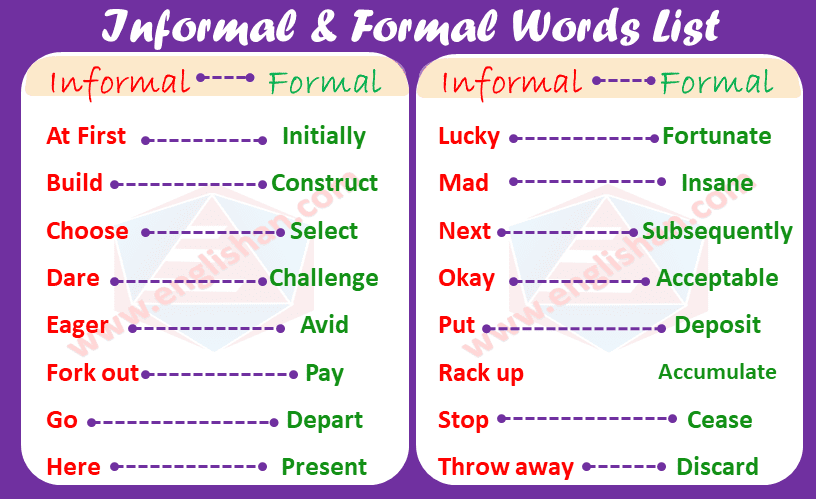
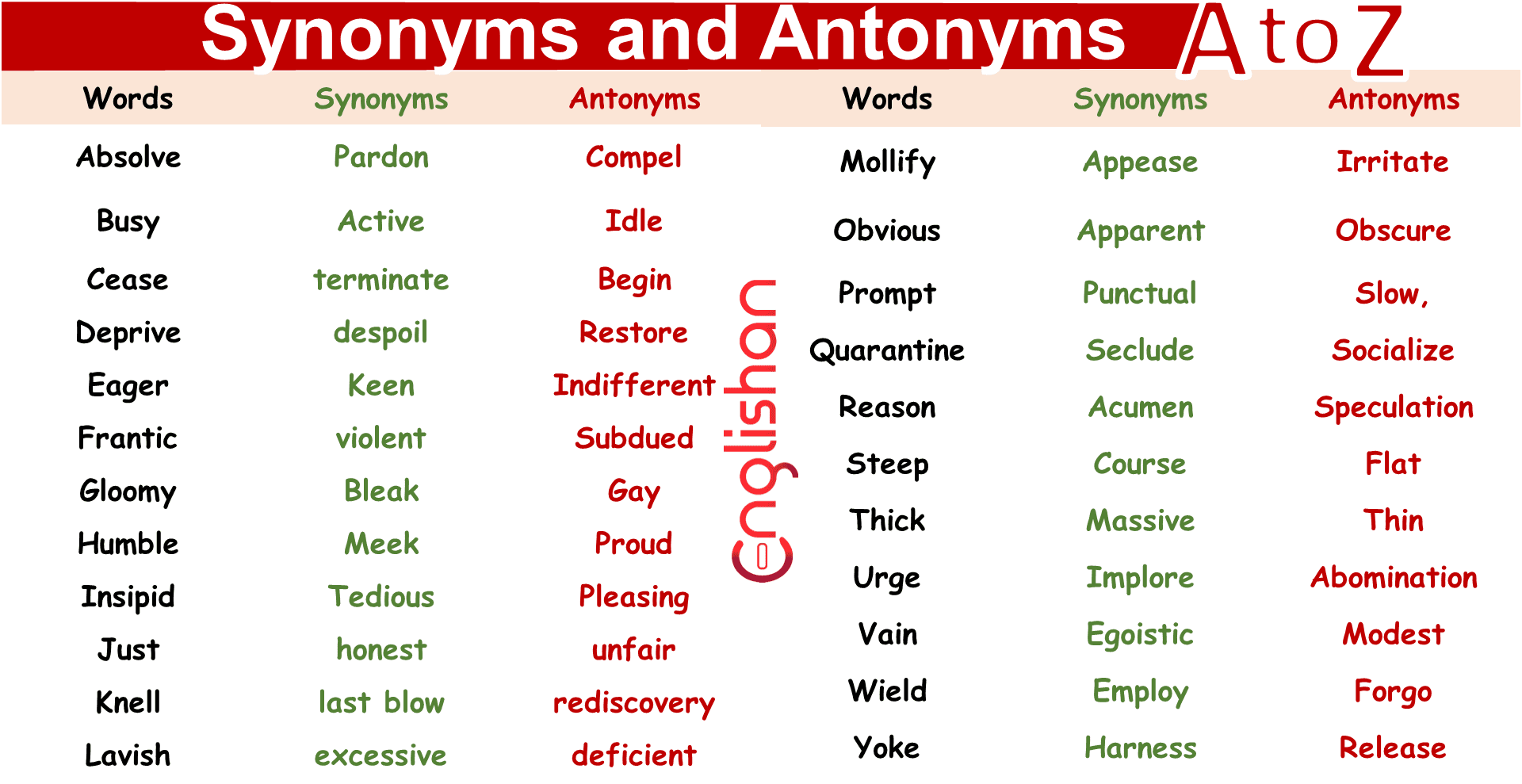
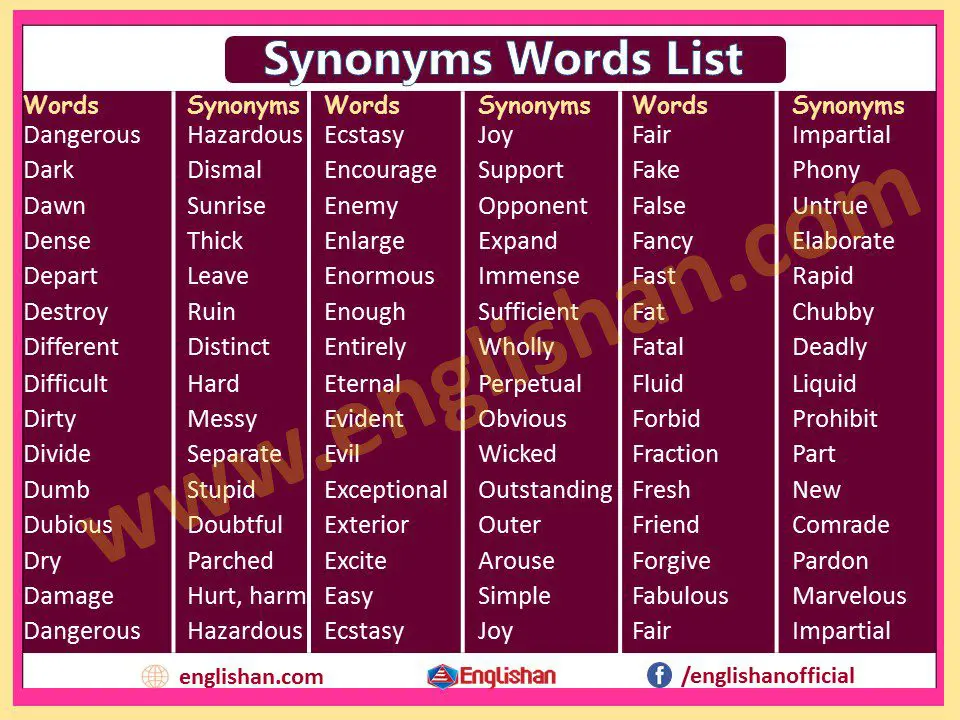
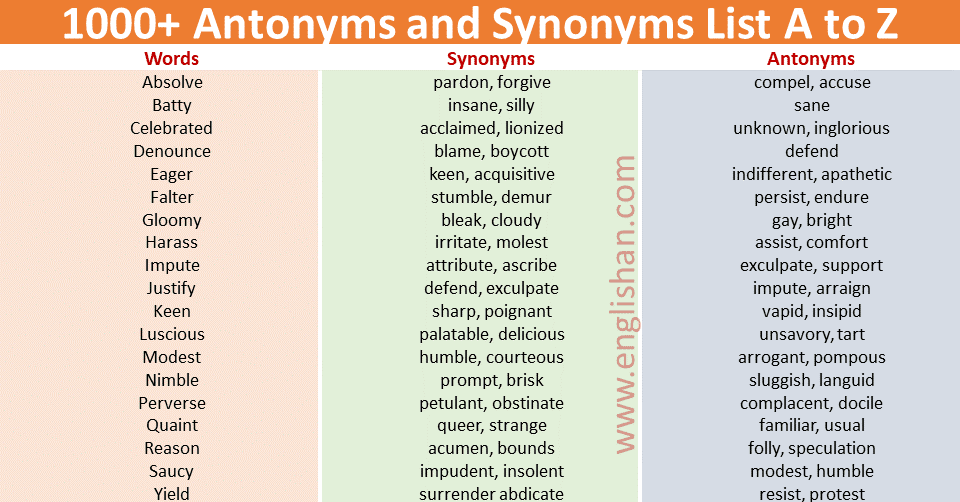
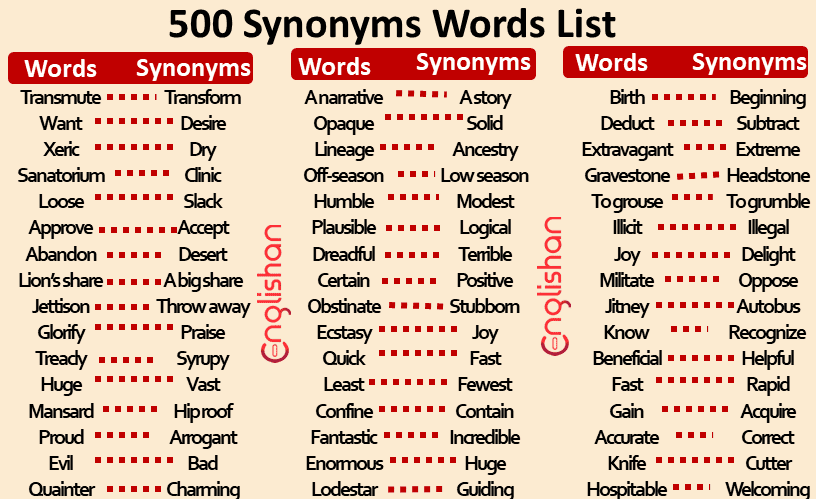
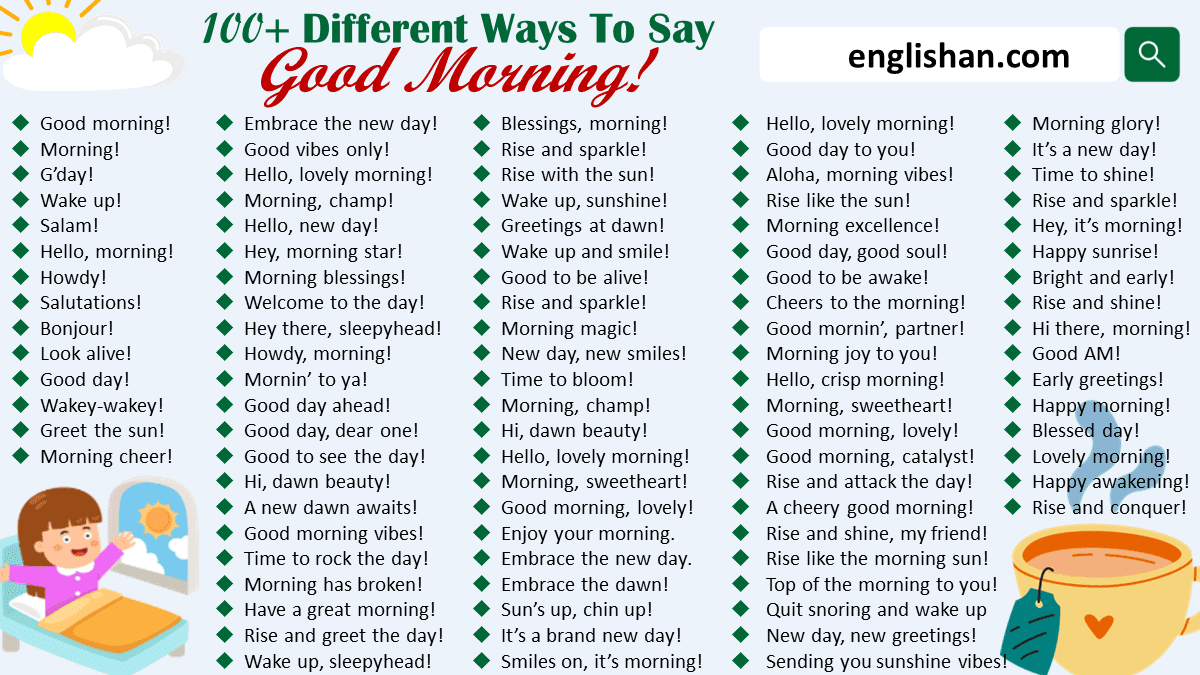
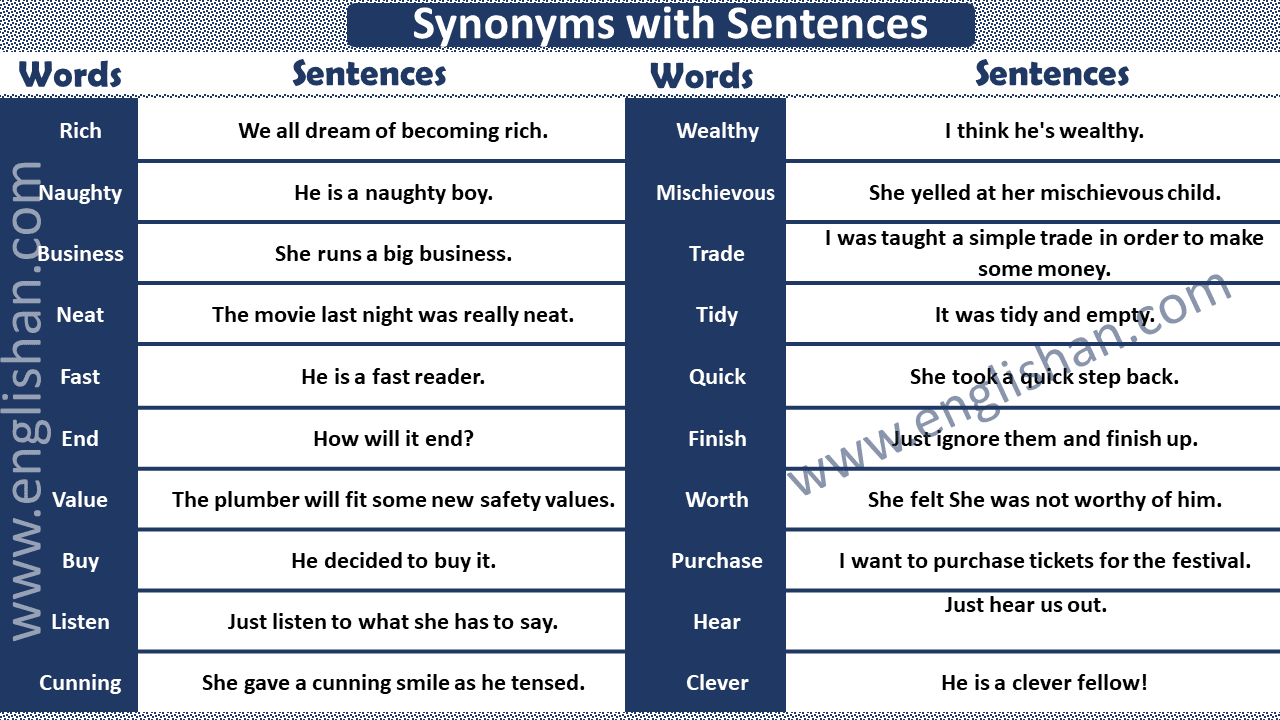
thank you so much.. it is so helpful